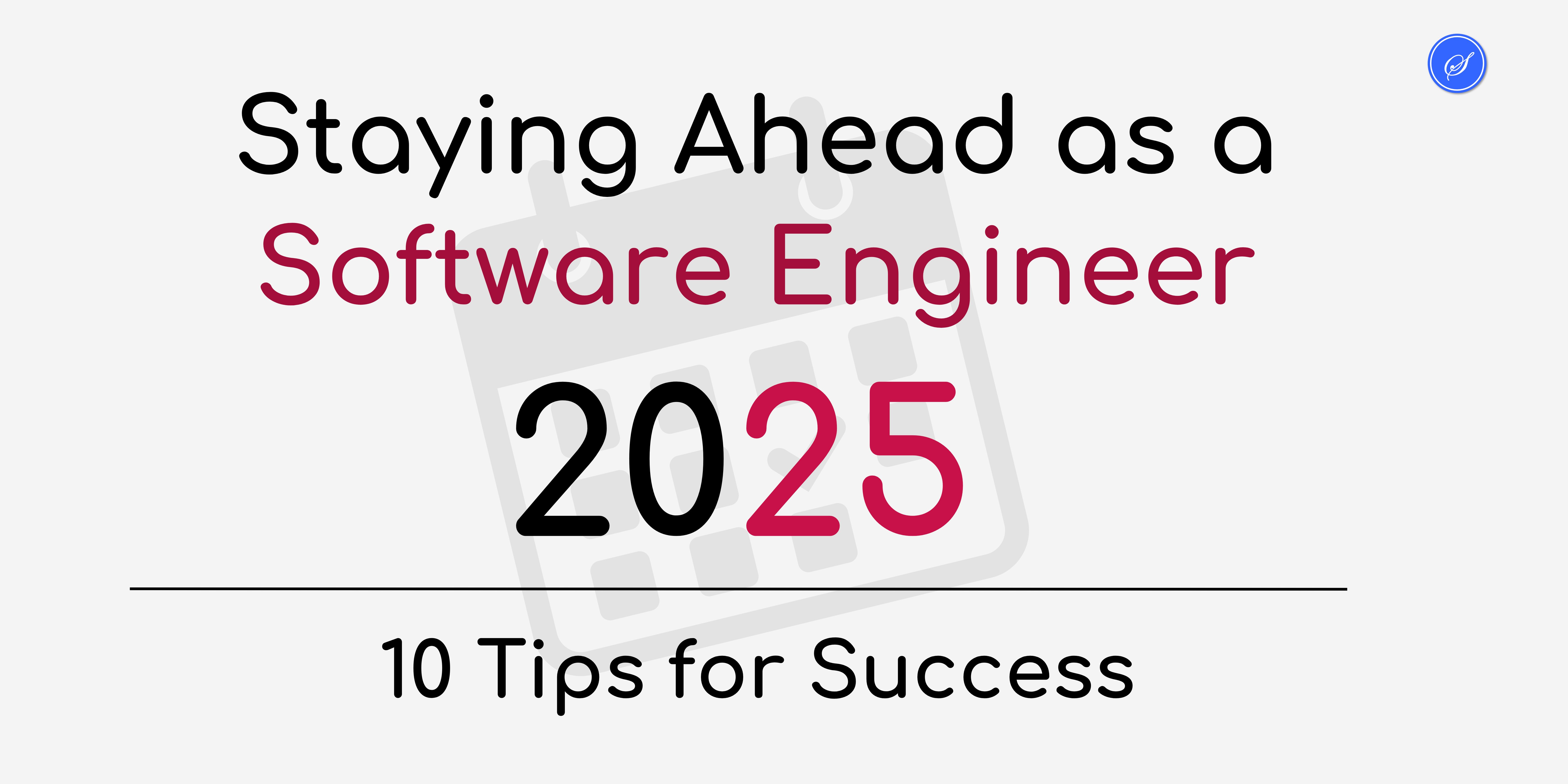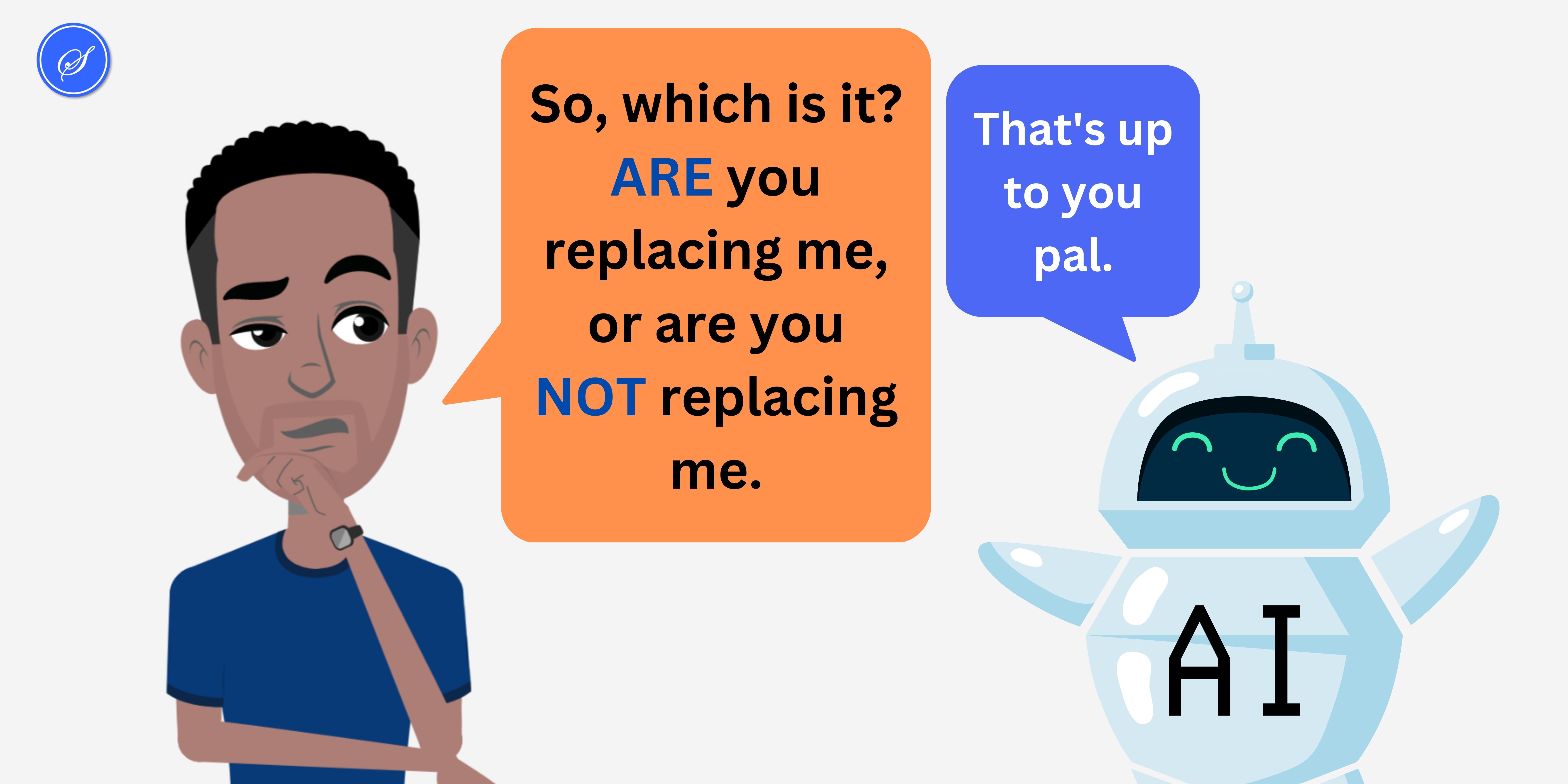Staying Ahead as a Software Engineer in 2025
10 Tips for Success
Prefer to listen?

Tech continues to change and grow, and we have to follow along with it to become, maintain or increase our relevance in our fields. The industry's evolution is happening faster than ever, and as a software engineer in 2025, staying ahead means more than just coding. From adopting cutting-edge technologies to refining soft skills, the journey to professional excellence can be dynamic and multi-faceted. Here’s how you can keep up and thrive in the fast-paced field of software engineering in 2025.
Tips to Stay Ahead
1. No Better Time to Up Your Learning
Technology doesn’t stand still, and neither should you. Learning new programming languages, tools, and frameworks is essential. By 2025, trends like quantum computing, blockchain advancements, and AI-driven applications are shaping the industry.
Actionable Steps:
- Enroll in online courses on platforms like Coursera or Udemy.
- Stay updated on industry news through blogs and tech magazines.
- Experiment with new technologies through personal projects.
2. Get to Mastering AI and Automation Already
AI isn’t just a buzzword you know; it’s becoming integral to software development. While dependent on your specialisation, engineers with knowledge of machine learning models, AI ethics, and automation tools are and will continue be in high demand.
Key Skills to Develop:
While this largely depends on your specialisation, key skills involving AI centre around:
- Machine learning frameworks (e.g., TensorFlow, PyTorch).
- Automation tools like Jenkins and Selenium.
- AI-driven DevOps practices.
3. About Time You Develop Full-Stack Expertise
While specialization remains important, companies value engineers who can handle both front-end and back-end development. Being versatile enhances your career prospects.
Languages and Frameworks to Learn:
- Front-end: React, Angular, Vue.js.
- Back-end: Node.js, Django, Ruby on Rails.
- Databases: NoSQL (MongoDB), SQL (PostgreSQL, MySQL).
4. Build Cloud Computing Skills
Cloud technologies are indispensable in 2025. Familiarity with cloud platforms like AWS, Azure, and Google Cloud positions you as a valuable asset.
Certifications to Pursue:
- AWS Certified Solutions Architect.
- Microsoft Azure Fundamentals.
- Google Cloud Professional Engineer.
5. Adopt Agile and DevOps Practices
Efficiency in software delivery and operations is key. Understanding Agile methodologies and DevOps tools helps you contribute effectively to collaborative environments.
Must-Know Tools:
- CI/CD tools: Jenkins, GitHub Actions.
- Containerization: Docker, Kubernetes.
- Agile tools: JIRA, Trello.
6. Hone Problem-Solving and Analytical Thinking
Beyond technical skills, your ability to solve complex problems distinguishes you. Companies value engineers who approach challenges methodically.
Ways to Improve:
- Practice coding challenges on platforms like LeetCode, HackerRank, or Codewars.
- Participate in hackathons to refine real-world problem-solving skills.
7. Strengthen Communication and Collaboration Skills
In 2025, remote work and cross-functional teams are more common. Effective communication ensures that your technical expertise translates into actionable solutions.
How to Excel:
- Work on technical writing to articulate your ideas clearly.
- Practice presenting your solutions to non-technical stakeholders.
- Collaborate on open-source projects to gain teamwork experience.
8. Stay Involved in the Tech Community
Networking opens doors to new opportunities and insights. Engaging with the tech community helps you learn and grow.
Opportunities to Explore:
- Attend conferences like AWS re:Invent or Google I/O.
- Join local meetups or participate in online forums like Stack Overflow.
- Contribute to open-source projects on GitHub.
9. Focus on Cybersecurity
As cybersecurity threats grow, engineers with knowledge of secure coding practices, data protection, and vulnerability management are in demand.
Focus Areas:
- Secure Software Development Life Cycle (SSDLC).
- Ethical hacking and penetration testing.
- Certifications like Certified Ethical Hacker (CEH) or CompTIA Security+.
10. Embrace Lifelong Adaptability
The tech industry is notorious for its unpredictability. The ability to pivot and adapt to new challenges ensures you remain relevant and successful.
Mindset Shifts:
- Be open to learning from failures and setbacks.
- Stay curious and proactive in exploring emerging tech.
- Build resilience by maintaining a growth-oriented outlook.
FAQs about Staying Ahead as a Software Engineer in 2025
What programming languages should I focus on in 2025?
Languages like Python, JavaScript, Rust, and Go are essential, along with emerging languages tailored to specific fields like AI or blockchain.
How can I stay updated with the latest tech trends?
Subscribe to tech blogs, follow thought leaders on platforms like LinkedIn, and participate in webinars and conferences.
Is it necessary to have certifications in 2025?
Certifications like AWS, Azure, or Google Cloud can validate your skills and improve your job prospects but are not a substitute for hands-on experience.
How do I build a strong professional network as a software engineer?
Engage in online forums, attend tech meetups, and participate in open-source projects to connect with peers and industry experts.
What non-technical skills are most important for software engineers?
Communication, collaboration, adaptability, and problem-solving are critical for thriving in team environments and solving complex challenges.
Comments

Enterprise Software and
Cloud Services for Your Business
Custom Web Applications, SaaS MVPs, Admin Dashboards, API Integrations, DevOps & Deployment, Ongoing Maintenance & Support.
What's in the newsletter?




